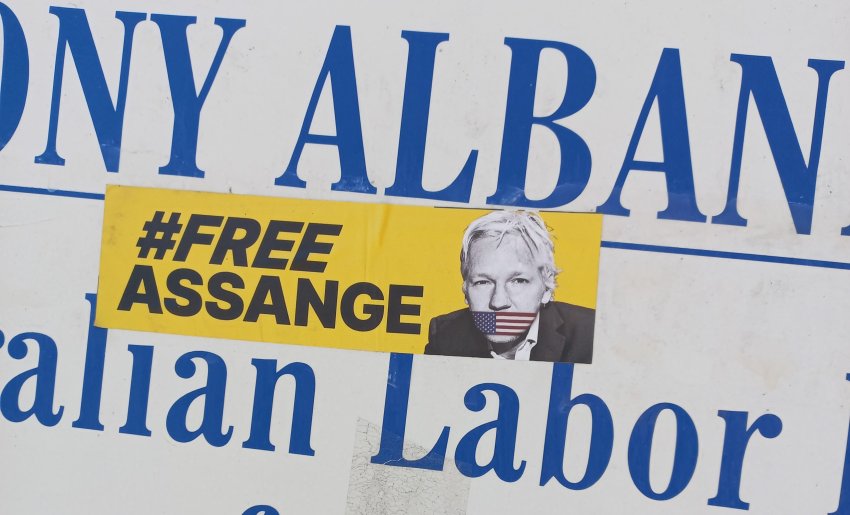
The unflinching United States effort to extradite and prosecute Julian Assange for 18 charges, 17 of which are chillingly based upon the Espionage Act of 1917, has not always stirred much interest in the publisher’s home country of Australia. Previous governments have done little to convince Washington to change course in dealing with Assange.
Before coming to power, Australia’s current Prime Minister Anthony Albanese made mention of wishing to conclude the Assange affair. Before a gathering at the Chifley Research Centre in December 2019, he described the publisher as a journalist, accepting that such figures should not be prosecuted for “doing their job”. He also said in 2020 that the “ongoing pursuit of Mr Assange” served no evident purpose. “Enough is enough,” he said.
The same point has been reiterated by a number of crossbenchers in parliament, represented by the independent MP from Tasmania, Andrew Wilkie. In a speech given earlier this year to a gathering outside Parliament House earlier, Wilkie wondered if Britain and Australia had placed their relations with Washington at a premium so high as to doom Assange. “The US wants to get even and for so long the UK and Australia have been happy to go along for the ride because they’ve put bilateral relationships with Washington ahead of the rights of a decent man,” he said.
The new government initially gave troubling indications that a similar approach had been adopted. “My position is that not all foreign affairs is best done with the loudhailer,” Albanese told journalists soon after assuming office.
Documents obtained under freedom of information showed an acknowledgment by the Albanese government of assurances made by the US that Assange would have the chance to serve the balance of any prison sentence in Australia. But the international prisoner transfer scheme is subordinate to the wishes of the department granting it. The US justice department can receive the request from Assange, but there is nothing to say that the request will be agreed to.
Amid all this, the campaign for Assange’s release has continued. Human rights and press organisations globally have persistently urged his release and a stop to the prosecution. The New York Times, Guardian, Le Monde, El País and Der Spiegel published a joint open letter on November 28 titled “Publishing is not a Crime”.
The five outlets who initially worked closely with WikiLeaks in publishing US state department cables 12 years ago have not always been sympathetic to Assange. They admit to having criticised him for releasing the unredacted trove in 2011 and expressed concern about his “attempt to aid in computer intrusion of a classified database”.
But, the Guardian’s own journalists muddied matters by publishing the key to the encrypted files in a book on WikiLeaks, and a mortified Assange warned the state department. Cryptome duly uploaded the cables before WikiLeaks did. The computer intrusion charge also withers before scrutiny, given that Chelsea Manning already had prior authorisation to access military servers without the need to hack the system.
But on this occasion, the publishers and editors were clear: “Cablegate disclosed corruption, diplomatic scandals and spy affairs on an international scale.”
“We have come together now to express our grave concerns about the continued prosecution of Julian Assange for obtaining and publishing classified materials,” they said.
The media outlets expressed their grave concerns about the use of the Espionage Act, “which has never been used to prosecute a publisher or broadcaster.” They said that such an indictment sets “a dangerous precedent, and threatens to undermine America’s First Amendment and the freedom of the press”.
The same day of the letter’s publication, Brazilian president-elect Lula da Silva added his voice to the encouraging chorus. He did so on the occasion of meeting the WikiLeaks editor-in-chief Kristinn Hrafnsson and Joseph Farrell, an associate of the organisation, and expressed wishes that Assange “be freed from his unjust imprisonment”.
This set the stage for Albanese’s intervention. In response to a question from independent MP Monique Ryan in parliament on November 30, Albanese publicly revealed that he had been lobbying the Joseph Biden administration to stop proceedings against Assange. “I have raised this personally with the representatives of the US government,” he said.
Albanese was hardly going to muck in on the issue of the WikiLeaks agenda. There are a number of prosecutions against whistleblowers that have not been abandoned even with the change of government in May.
Albanese drew a parallel with Manning, the key figure who furnished WikiLeaks with classified military documents and received a stiff sentence for doing so, but had her sentence commuted by then-President Barack Obama. “She is now able to participate freely in society,” he said. He openly questioned “the point of continuing this legal action, which could be caught up now for many years, into the future”.
Assange’s lawyer Jennifer Robinson called for action in her address to the National Press Club in Canberra in October. “This case needs an urgent political solution,” she said. “Julian does not have another decade to wait for a legal fix.”
The telling question is whether Albanese will get any purchase with Washington. While he enjoys a reputation as a pragmatic negotiator able to reach agreements in tight circumstances, the pull of the US national security establishment may prove too strong. “We now get to see Australia’s standing in Washington, valued ally or not,” was the guarded response of Assange’s father John Shipton.
[Binoy Kampmark lectures at RMIT University.]